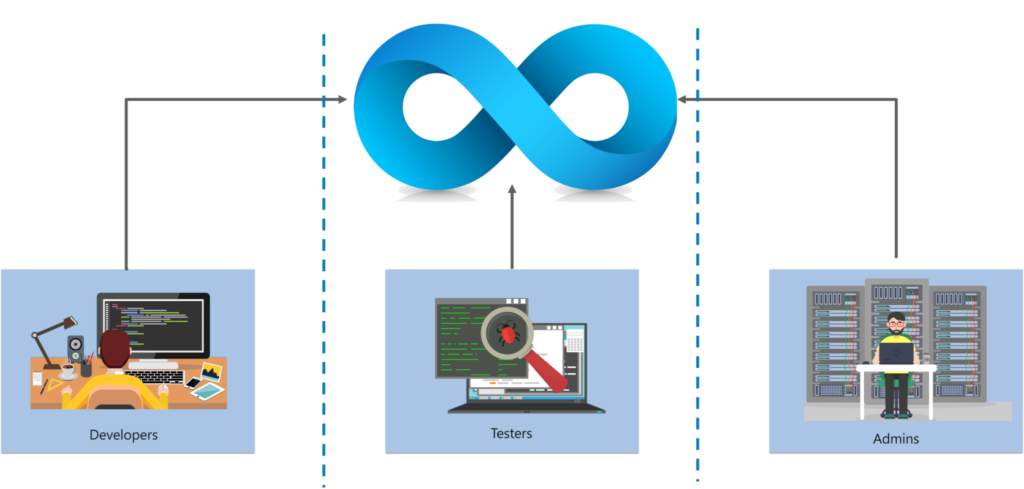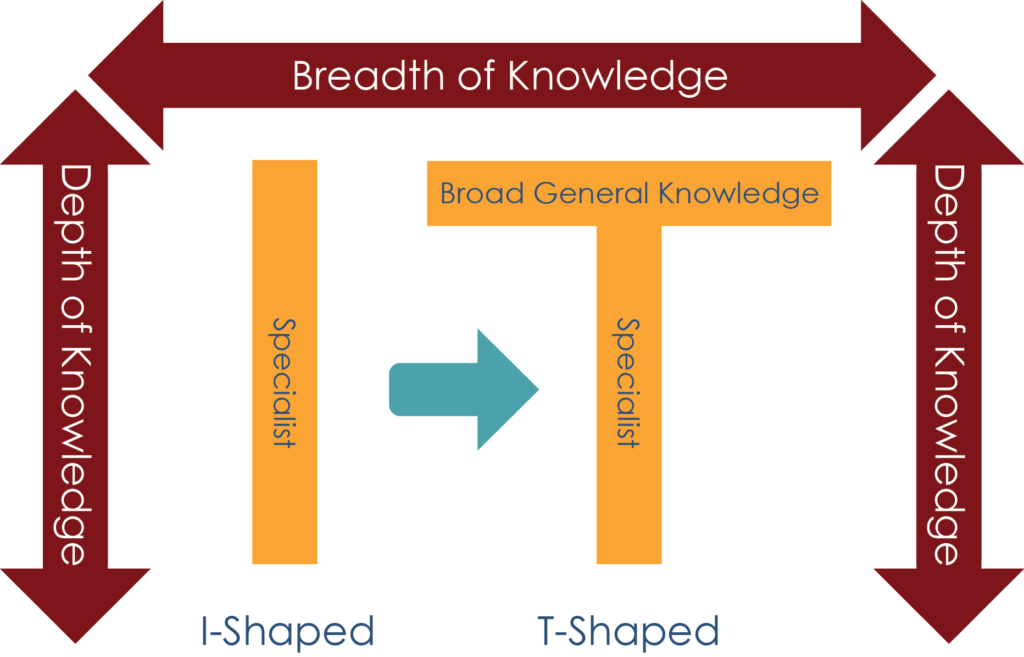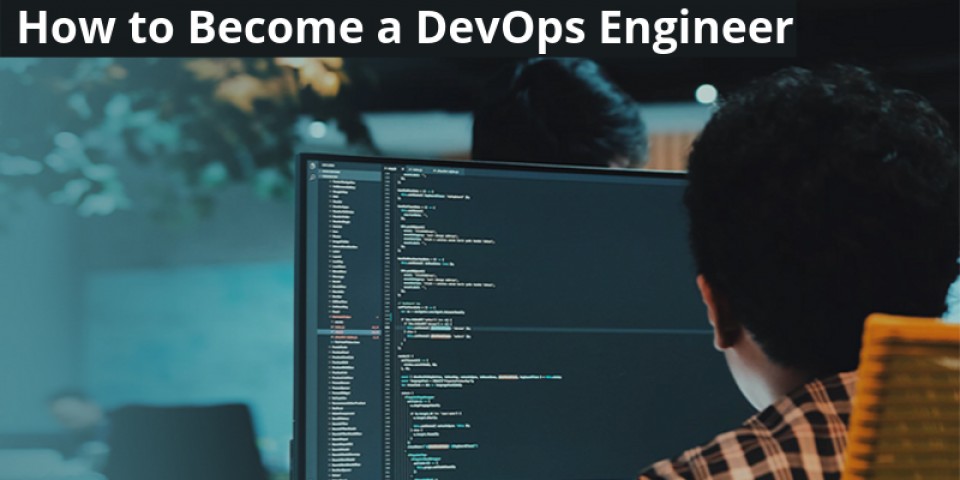Many companies are shifting to DevOps, which integrates software developers and IT specialists who manage production processes to make their workflow smoother and productive. It means DevOps engineers are in more demand than ever before. The DevOps Engineer is truly a renaissance man knowing a new trend in cloud computing. There are several specific career paths defined to become a DevOps Engineer. DevOps Professionals as an operations expert come from many IT domains and continue their career in various places.

Are you aiming to start a career in DevOps and confused about where to start, here is the guide that lets you know what skills a DevOps Engineer should have, their roles and responsibilities, and how to become a DevOps Engineer?
What is DevOps?
DevOps is a combination of two processes: Development and Operations. DevOps have a good command and knowledge of the software development lifecycle. DevOps is a customized software development method that bridges the gap between the development team and the IT operations staff. It combines various development operations with the primary goal of reducing the total cost and turnaround time of completing multiple technical projects while improving the existing infrastructure.

Many organizations can deliver better quality results by implementing DevOps skills and can yield many advantages, such as deploying the applications quicker and faster and spending less time on configuration management. Nowadays, DevOps has become an integral part of many small and big companies’ infrastructures.
Who is a DevOps Engineer and what they do?
As the name suggests, a DevOps Engineer is responsible for development and operations. DevOps Engineer is an IT professional who needs to coordinate with like-minded software developers, system operators, and other IT related staff members to manage code releases.

DevOps engineers should know various automation tools available in the market for developing different digital pipelines (CI – Continuous Integration and CD – Continuous Deployment).
DevOps engineers act as an intersection between his team and the end customer based on the project requirements. Some of the benefits for organizations going for DevOps include very few software failures; and cut the lead time between bug fixes.

Most big industry players offer DevOps Engineer course certifications to appropriately train users on how to utilize their tools and services. They provide DevOps Engineer Master’s Program to make candidates proficient in DevOps principles with instructor-driven training sessions. DevOps certification is an excellent opportunity for new developers and businesses to access their platform.
DevOps Engineer – Responsibilities

- Actively monitor and troubleshoot various issues that usually arise during software testing and production stage and need to solve all the problems before the code release process.
- Need to design new processes and update existing processes whenever needed.
- Handle the team efficiently through development and operations.
- Find ways to improve the business and follow the current industry trends.
- Give technical support where required, develop software for the back-end systems.
- Time is precious in project management, and they are responsible for the optimization of release cycles.
- They should ensure the proper functioning of various software platforms.
- Perform system tests for performance and security
Skills Needed for a DevOps Engineer

- Should require excellent oral and written communication skills
- Should have hands-on experience in databases, networking security, and cloud systems
- Need to have excellent troubleshooting and problem-solving skills
- Hands-on Agile Software Development methodologies, and experience in C/C++, Go, Java, and JavaScript
- Good experience in Windows and Linux administration
- Hands-on experience with development CI/CD tools and knowledge on networking protocols
- Need to know programming languages like Pearl and Python
- Need to be extremely flexible in dealing with multiple urgent situations at a time
- Expertise in data management and IT Systems
- Need to have production environment knowledge and project management skills
Who can become a DevOps Engineer?

Like developers and system administrators, IT professionals from various backgrounds often grab the role of a DevOps Engineer. Any candidates holding a bachelor’s degree in Computer science, engineering, informatics, and mathematics are best suited for DevOps engineer’s role.
What are the Specialized DevOps Roles?
DevOps respond across various departments and handle software developers, managers, and administrators to improve a software product for the client. Based on the requirements a DevOps Engineers can take up various roles and responsibilities in an organization like:
- Software Developer: A DevOps software developer is responsible for not just code development, but also goes to the next level and does unit testing, monitoring, deployment, and reporting tasks.
- Automation Expert: Under this role, a DevOps Engineer is called an Automation Architect and is responsible for using various automation tools to automate the development, integration, and testing of software deployment strategies.
- Security Officer: DevOps Organizations deploy security officers to work along with the software developers, system architects, and DevOps managers to integrate robust security into their products at an early stage of development rather than implementing at the end.
- Release Manager: Here, DevOps Managers or release managers work closely on proper coordination and management of a product from start to end release.
How to Become a DevOps Engineer?

DevOps is often used nowadays as a job title because it involves knowledge of different stages in the life cycle of software development. Organizations are more interested in the experience of a DevOps engineer rather than certification or training. But the accreditation adds value to the resume of professionals to stand apart from the competition. There are several certifications for DevOps professionals based on their skill sets.
A successful DevOps Engineer needs to combine both tech capabilities and strategizing techniques. DevOps Engineer is responsible for building tools that support mission-critical IT infrastructures. They streamline and automate various processes while analyzing and solving problems related to existing development procedures.
Final Words
The career path of DevOps is not only one of the most lucrative, but also one of today’s most self-gratification across several IT professional divisions. Certifications gain additional expertise while shaping your career to become a DevOps engineer. Certifications help you to demonstrate your commitment and passion. And because it may also give you a head-start on other members, it’s a worthwhile investment today.